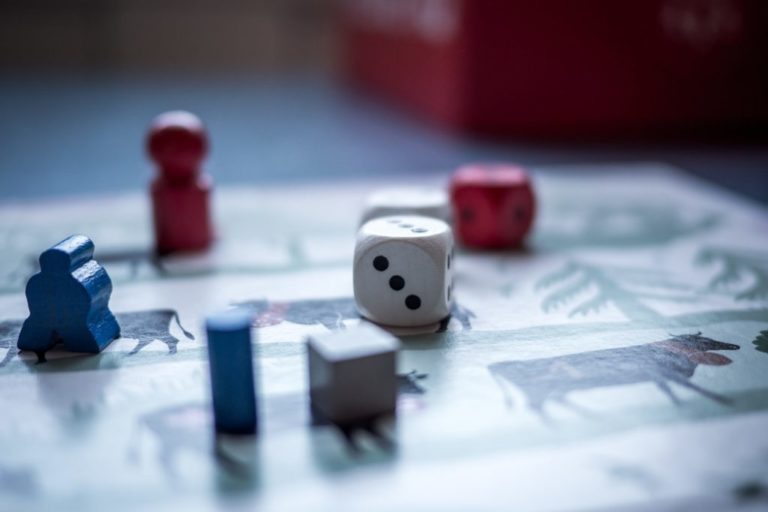When my mother started to slip cognitively her doctor recommended we play basic, brain stimulating games to help slow the pace of decline. Our family favorite game was Yahtzee. Yahtzee can be a high energy game of basic strategy and elementary level counting.
We witnessed our mom’s level of engagement tick up when we played and as far as counting goes, in the beginning, she was as sharp as ever. – Mrs. Bradshaw
Much has been written about the role games might play in protecting a senior from memory loss or slowing the progression of Alzheimer’s disease or a related form of dementia. According to experts from the Alzheimer’s Association, keeping your brain active and engaged may help guard against mental decline. Some researchers even believe stimulating brain activities can actually aid in generating new brain cells.
Another study, published by The Lancet in March 2015, found the combination of a healthy diet, strength training, aerobic exercise, controlling blood pressure/weight, and brain games slows mental decline in older people.
Brain Training Game Recommendations
Many companies have branded games as “brain games,” and some of them are effective, but we wanted to give you some ideas that don’t require spending a lot, or any, money.
If you have a family gathering approaching, it may be the perfect time to dust off old favorites, or adopt new ones.
Here are a few ideas for memory games, brain teasers, and other fun games to explore:
Card Games: Most seniors can access a deck of cards easily and the process of adding, subtracting, strategizing, and matching suits is both fun and beneficial, especially if it is a game they may have played in their youth. Some examples include:
- Gin or 500 Rummy
- Spades
- Hearts
- Pinochle
- Crazy Eights
- 21
- Blackjack
- Bridge
Jigsaw Puzzles: The benefits of jigsaw puzzles can include sharpening short-term memory, and improved cognition and problem-solving.
Dot to Dot: This simple activity is completing pictures by connecting the dots. When followed by coloring, it can be a fun activity for seniors and younger children to do together.
Board Games: Monopoly, chess, checkers, Connect Four, Boggle, bingo
Counting Backwards: Another brain stimulating activity that is perhaps the simplest one on our list requires no internet access or special supplies. It is simply counting. But instead of counting forward, begin at the number 200 and count backwards, subtracting 3 each time you do.
Puzzle Books: Old-fashioned crossword, word searches, and other puzzle books such as Sudoku puzzles, might also help keep your brain in good shape. A few of the advantages these books offer is that they are usually inexpensive, and easily portable. You can work on them wherever you are, whether it is in a doctor’s waiting room or your favorite chair in the living room.
Additional Resources for Brain Exercises
AARP Game Center: One of the best and most comprehensive game sites for seniors is put together and hosted by AARP. Here you will find everything from online jigsaw puzzles, to mahjongg, to trivia games, to brain health crossword puzzles.
BrainHQ: This subscription brain game service is available for as little as $8 a month. It’s also available for free through many libraries, or offered through certain insurance providers to Medicare Advantage members.
There are exercises designed to address different skills: memory, attention, brain speed, social interactions, and navigation.
Lumosity: This brain-training tool is available online as well as through app stores. It offers daily brain exercises through research-backed logic puzzles and more. Learn more here.
Braingle: Free riddles, puzzles, games and more to help seniors exercise their mental agility.
Other Resources
Additional memory and cognitive resources available to seniors, their friends, caregivers, and family members include:
- www.alz.org
- www.elmcroft.com
- www.aarp.org
- www.thelancet.com
The Future of Brain Games
Researchers are working diligently to treat memory loss and permanently reverse the effects of cognitive decline. A recent study from the UK indicated that watching over three hours of television daily represented an increased risk for accelerated memory loss.
Brain games can present an engaging alternative to inactivity. We encourage you to try some of our ideas the next time you are with your senior loved ones.
If you have any questions about the effectiveness of brain games and whether they would be beneficial for you or a senior in your family, reach out to a primary care provider.
A Checklist to Caring for Aging Parents

